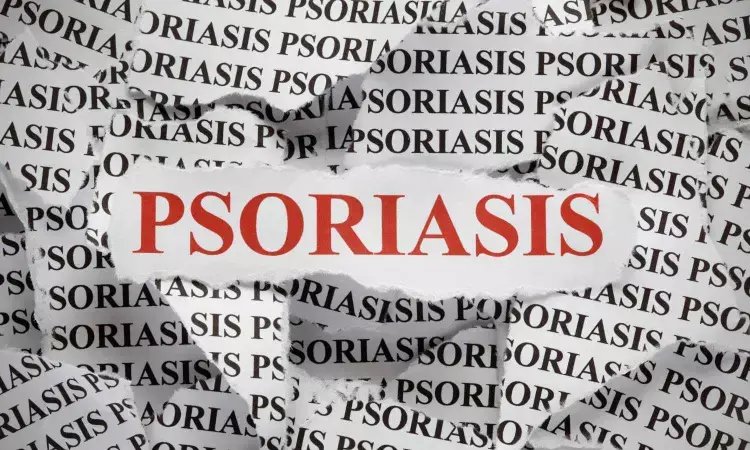- Home
- Medical news & Guidelines
- Anesthesiology
- Cardiology and CTVS
- Critical Care
- Dentistry
- Dermatology
- Diabetes and Endocrinology
- ENT
- Gastroenterology
- Medicine
- Nephrology
- Neurology
- Obstretics-Gynaecology
- Oncology
- Ophthalmology
- Orthopaedics
- Pediatrics-Neonatology
- Psychiatry
- Pulmonology
- Radiology
- Surgery
- Urology
- Laboratory Medicine
- Diet
- Nursing
- Paramedical
- Physiotherapy
- Health news
- Fact Check
- Bone Health Fact Check
- Brain Health Fact Check
- Cancer Related Fact Check
- Child Care Fact Check
- Dental and oral health fact check
- Diabetes and metabolic health fact check
- Diet and Nutrition Fact Check
- Eye and ENT Care Fact Check
- Fitness fact check
- Gut health fact check
- Heart health fact check
- Kidney health fact check
- Medical education fact check
- Men's health fact check
- Respiratory fact check
- Skin and hair care fact check
- Vaccine and Immunization fact check
- Women's health fact check
- AYUSH
- State News
- Andaman and Nicobar Islands
- Andhra Pradesh
- Arunachal Pradesh
- Assam
- Bihar
- Chandigarh
- Chattisgarh
- Dadra and Nagar Haveli
- Daman and Diu
- Delhi
- Goa
- Gujarat
- Haryana
- Himachal Pradesh
- Jammu & Kashmir
- Jharkhand
- Karnataka
- Kerala
- Ladakh
- Lakshadweep
- Madhya Pradesh
- Maharashtra
- Manipur
- Meghalaya
- Mizoram
- Nagaland
- Odisha
- Puducherry
- Punjab
- Rajasthan
- Sikkim
- Tamil Nadu
- Telangana
- Tripura
- Uttar Pradesh
- Uttrakhand
- West Bengal
- Medical Education
- Industry
Sleep and Testosterone: Dual Drivers of Psoriasis Risk in Men: Study

Men with low testosterone levels below 300 ng/dL are twice as likely to develop psoriasis (OR 2.97), while sleep less than 7 hours was associated with a 76% higher risk, according to NHANES data. Risk diminished at very low testosterone levels and beyond 8 hours of sleep, highlighting hormonal balance and sleep as modifiable risk factors in psoriasis prevention.
Psoriasis is a chronic, multisystemic immune-mediated inflammatory disorder with a complex etiology involving genetic, environmental, and systemic factors. Testosterone, a key androgen hormone, has immunomodulatory effects, and its deficiency is linked to increased inflammation. Sleep disturbances are also known to exacerbate systemic inflammation. This study investigates the associations between low testosterone levels, short sleep duration, and psoriasis risk using data from the US National Health and Nutrition Examination Survey (NHANES) 2011– 2014.
This cross-sectional study included 4,060 male participants, after excluding individuals with missing data on psoriasis, testosterone, sleep duration, and relevant covariates. Psoriasis status was self-reported, testosterone levels were measured using isotope-dilution liquid chromatography-tandem mass spectrometry (ID-LC-MS/MS), and sleep duration was assessed through a self-reported questionnaire. Multivariable logistic regression models were used to estimate the associations between testosterone levels, sleep duration, and psoriasis risk. Restricted cubic spline (RCS) analysis explored potential non-linear relationships, and subgroup and sensitivity analyses were performed to test the robustness of the findings.
Results: Participants with testosterone levels below 300 ng/dL had a significantly higher risk of psoriasis (OR=2.97, 95% CI: 2.16– 4.09, P< 0.001) in the fully adjusted model. Short sleep duration (< 7 hours) was also associated with increased psoriasis risk (OR=1.76, 95% CI: 1.33– 2.35, P< 0.001). The RCS analysis revealed a non-linear association between both testosterone levels and sleep duration with psoriasis risk, with risk plateauing at extremely low testosterone levels and sleep durations longer than 8 hours. Sensitivity analysis excluding participants with testosterone levels > 1000 ng/dL confirmed the robustness of these associations. Low testosterone levels and short sleep duration are independently associated with an increased risk of psoriasis in a large, diverse male population.
These findings highlight the importance of hormonal and lifestyle factors in the prevention and management of psoriasis, suggesting potential intervention points for improving patient outcomes.
Reference:
Zhuo Y, Lin L, Dong Q, Ye J. Testosterone Deficiency and Sleep Deprivation as Risk Factors for Psoriasis: Insights From the National Health and Nutrition Examination Survey (NHANES) 2011–2014. Clin Cosmet Investig Dermatol. 2025;18:1579-1591 https://doi.org/10.2147/CCID.S521594
Dr. Shravani Dali has completed her BDS from Pravara institute of medical sciences, loni. Following which she extensively worked in the healthcare sector for 2+ years. She has been actively involved in writing blogs in field of health and wellness. Currently she is pursuing her Masters of public health-health administration from Tata institute of social sciences. She can be contacted at editorial@medicaldialogues.in.
Dr Kamal Kant Kohli-MBBS, DTCD- a chest specialist with more than 30 years of practice and a flair for writing clinical articles, Dr Kamal Kant Kohli joined Medical Dialogues as a Chief Editor of Medical News. Besides writing articles, as an editor, he proofreads and verifies all the medical content published on Medical Dialogues including those coming from journals, studies,medical conferences,guidelines etc. Email: drkohli@medicaldialogues.in. Contact no. 011-43720751


